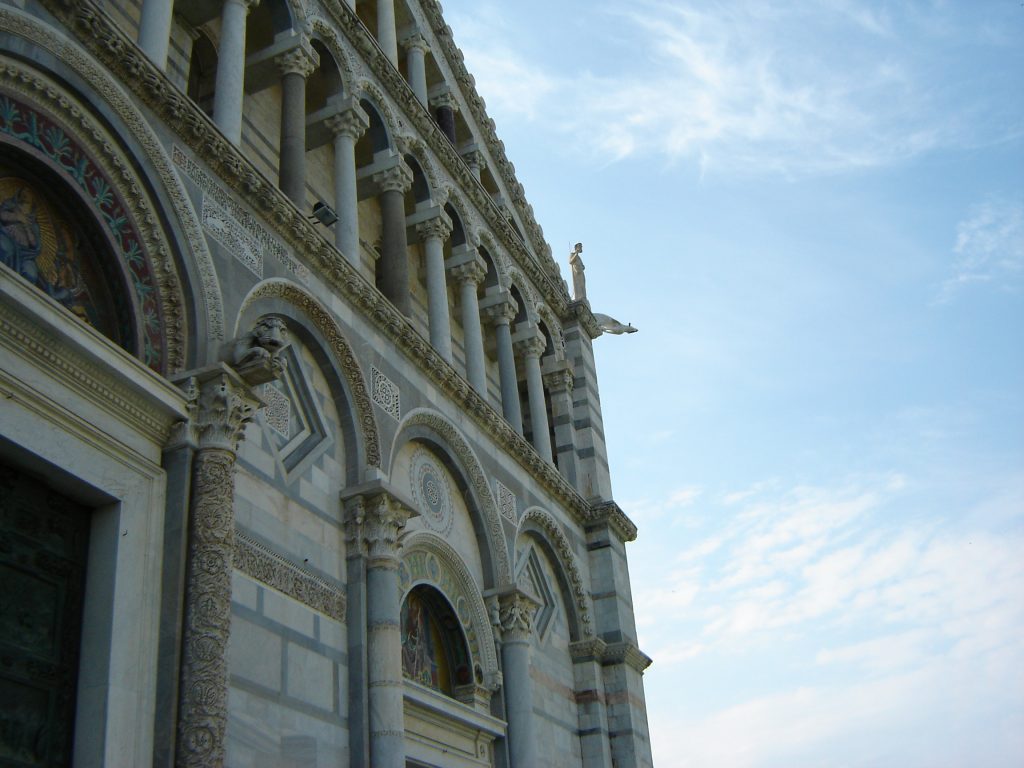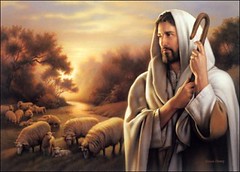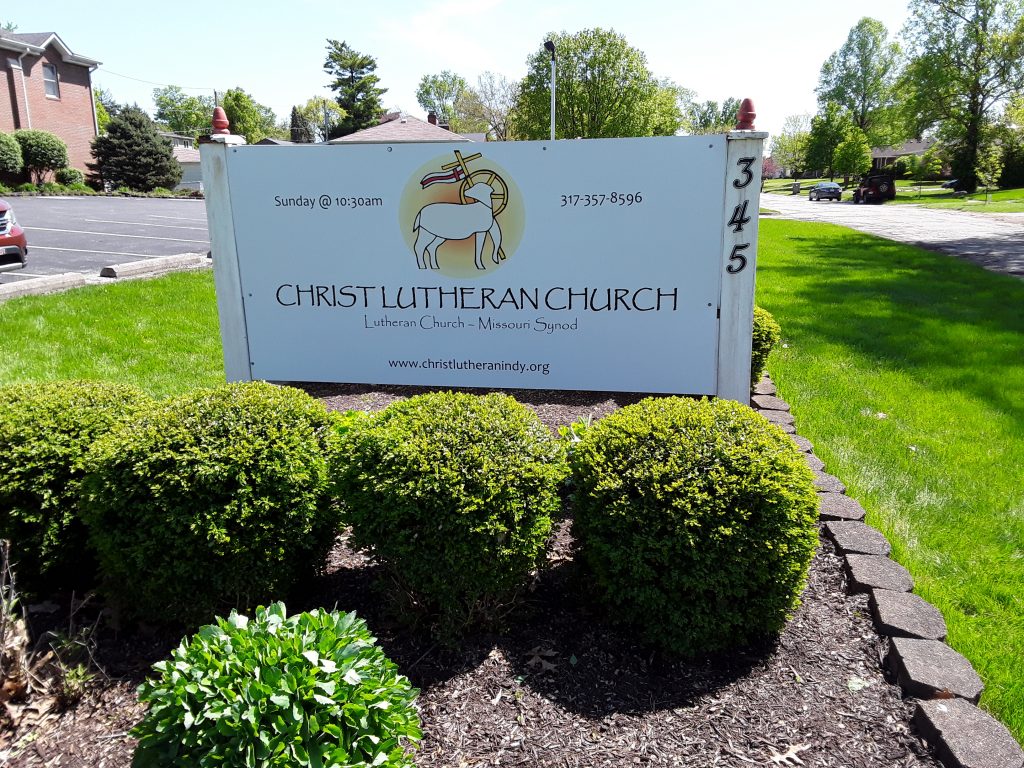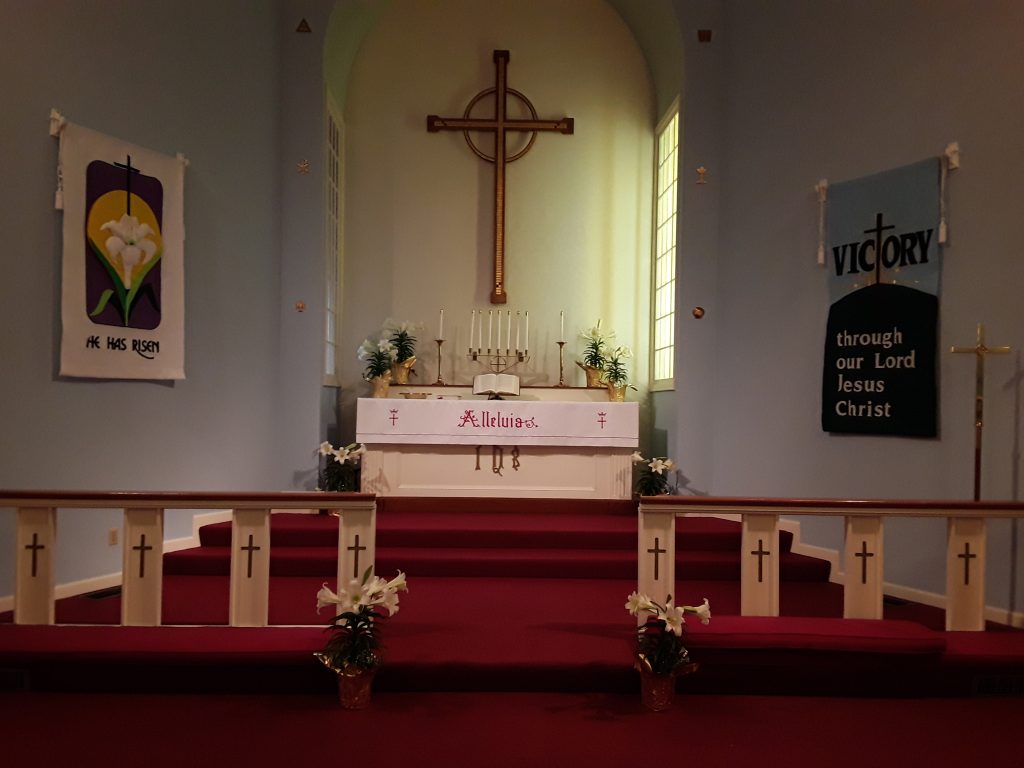Brothers and sisters in Christ here in the thick of summer, I can’t help but think about the stars. People have been setting off fireworks in the night sky this past week, but the light show of God’s creation far surpasses anything we can light up the sky with. It is just about unbelievable to consider the expanse of the stars, light years away and yet they still give off light that we can see.
We heard at the beginning of our worship service how God’s people see the stars through the inspiration of the Holy Spirit: The heaven’s declare the glory of God, and the sky above proclaims his handiwork.
In our modern science fiction obsessed world we may associate the stars as this frontier of the unknown. If you research the stars and astronomy you get numbers beyond comprehension and estimates of the age of the stars that fit within the narrative of evolution and the theoretical big bang.
Many a time in the past such views of the stars make me want to narrow my focus and just forget about the stars and all of the unknowns about space- after a while I become weary of things that are hard to understand and I get tired of filtering through in my mind which statements I hear that are following speculative philosophy instead of actual scientific observations.
To me all of the evolutionary speculations that are stated as if they are fact makes me feel depressed, ‘this again, you can’t read anything without encountering the same tired stories about cataclysmic events that somehow bring order to the universe.’
Regardless of what speculative scientists write about the universe this expanse of stars beyond our comprehension declares the glory of God each day:
Day to day pours out speech, and night to night reveals knowledge. Psalm 19 describes the stars as providing a tent for the sun, and celebrates that nothing is hidden from the heat of the sun and the stars.
The stars not only give an illustration about the glory of God in creation, they also proclaim the power of God’s Word, the gospel. Genesis 15:5 “And he brought him outside and said, look toward heaven, and number the stars if you are able to number them.” Then he said to him, “So shall your offspring be.” And he believed the LORD, and he counted it to him as righteousness.
By the inspiration of the Holy Spirit St. Paul quotes both Isaiah chapter 52 and Psalm 19 in his letter to the Romans chapter 10: 14 How then will they call on him in whom they have not believed? And how are they to believe in him of whom they have never heard? And how are they to hear without someone preaching? 15 And how are they to preach unless they are sent? As it is written, “How beautiful are the feet of those who preach the good news!” 16 But they have not all obeyed the gospel. For Isaiah says, “Lord, who has believed what he has heard from us?” 17 So faith comes from hearing, and hearing through the word of Christ.
18 But I ask, have they not heard? Indeed they have, for “Their voice has gone out to all the earth, and their words to the ends of the world.”
These same Words were spoken in our Gradual: How beautiful are the feet of those who preach good news, who publish peace and bring good news of salvation. Their voice has gone out to all the earth, and their words to the ends of the world.
Instead of celebrating how heavens declare the glory of God, it is now the voice of the church, Jesus’ followers whose voice goes out to all the earth. Yes the stars are beautiful and awesome in their nature, but how beautiful are the feet of those who bring good news- how beautiful is the work of the gospel – ringing out with power and might from one corner of the earth to another.
The peace of the Lord extends from one corner of the earth to another. Jesus sent out the 72 to proclaim this peace, and this peace has gone out to us. We are far enough from Jerusalem to ourselves be the ends of the world. The Word has gone out to us and the message we give to the world is the message of ultimate peace, God has reconciled the world to Himself through His Son Jesus.
The voice of the gospel that we proclaim, both pastors, and congregation members alike, goes out to all the earth, and shines with a brightness beyond what we can comprehend. This is such a thing of beauty because lives are transformed from condemnation to an inheritance in heaven.
If you were to try and think about all of the people in your life that have shared the gospel with you in word or deed. All of the people who have encouraged you whether in person or through a book you read or a sermon address you heard on the radio, a movie, a podcast, all of the friends in Christ you have known, pastors, Sunday school teachers, your own family, classmates or campus ministry peers- why the list is so long you cannot really take in the scope of it.
I imagine this list would include all of the hymn writers of your favorite hymns, the seminary professors who taught your pastors or theologians in the history of the church who inspired the pastors you have known in your life, the authors who wrote your favorite children’s books like CS Lewis and Chronicles of Narnia, your favorite gospel song writers- and we cannot forget all of those saints in the Old and New Testament who inspire us by their examples of faithfulness, and saints throughout the church’s history, like Martin Luther or Dietrich Bonhoeffer or Henri Nouwen.
The voice of the gospel goes out to all the earth, and it is just like the stars, we can hardly comprehend how beautiful God’s design is.
Yet this message of unsurpassed beauty is not always heard as peace by the world. Some hear the message of the gospel from the church as the Word of Jesus himself, while others want to imagine that somehow the proclamation of Christ Crucified is only the message of the church and not what God intends for people to know. We heard in our gospel reading:
16 “The one who hears you hears me, and the one who rejects you rejects me, and the one who rejects me rejects him who sent me.”
Jesus clarifies that those who are sent by him are speaking for him and the Father as well. The unbelief of this world is a daunting obstacle for believers. It is too easy to second guess or doubt what business we have sharing the gospel with others as we realize many will not want anything to do with hearing God’s Word.
Yet we need to remember we are not sharing our own message, but speaking with Jesus, speaking with the entire body of Christ this gospel that has been ringing through the world with glory and power.
As the disciples rejoiced that even demons submitted to their names, Jesus points out that the true reason to rejoice is not that they are instruments of such power for God’s kingdom- but that they themselves are saved through Christ.
Our names written in the book of life is far more valuable to us than what we can accomplish in life through the power of God’s Word. We don’t proclaim the gospel to boast about how good we are at it, instead we are thankful above all else that this message applies to us as well.
Those of us who are able to many things in God’s kingdom, and those of us who are able to do very few things, with little to boast about we all alike receive the same amazing gift of the our names written in the book of life. Amen.






